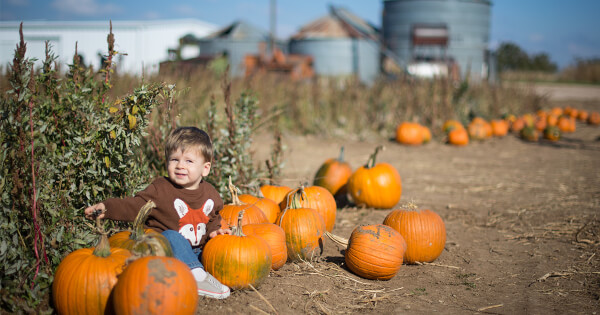
And that is why I do not like the news, because there has never been an era when so many things were going so right for so many of the wrong persons.
—Ogden Nash, “Everybody Tells Me Everything,” The Face Is Familiar, 1941
Someone goes by wearing a hood
in his own darkness
not seeing the harvest moon
—Yosa Buson (tr. by W. S. Merwin and Takako Lento), c. 1760
What a wild and pleasing outline, a combination of graceful curves and angles! The eye rests with equal delight on what is not leaf and on what is leaf … —almost a leafy archipelago.
—Henry David Thoreau, Autumnal Tints, October 1862
And they say that if you go to his grave and speak loud and clear, “Dan’l Webster—Dan’l Webster!” the ground’ll begin to shiver and the trees begin to shake. And after a while you’ll hear a deep voice saying, “Neighbor, how stands the Union?” Then you better answer the Union stands as she stood, rock-bottomed and copper-sheathed, one and indivisible, or he’s liable to rear right out of the ground.
—Stephen Vincent Benét, “The Devil and Daniel Webster,” 1936
The Empress was amused … and picking up a stray piece of paper she wrote: “The memory of a salad lingers in her head,” and bade me make a beginning for the poem. I wrote: “More than the cuckoo’s song that she went out to hear.” “Well, Shōnagon,” she said, laughing, “how you of all people can have the face to mention cuckoos, I cannot imagine.” I felt very crestfallen, but answered boldly: “… When I am called upon like that, I can’t even count the syllables, still less think whether I am writing a winter song in spring, or a spring song in autumn.”
—Sei Shōnagon, The Pillow Book (tr. by Arthur Waley), 1002
But I hate those people back
from the core of my donkey soul …
and I force myself toward pleasure,
and I love this November life
where I run like a train
deeper and deeper
into the land of my enemies.
—Tony Hoagland, “Reasons to Survive November,” What Narcissism Means to Me, 2003
Shoes are the first adult machines we are given to master.
—Nicholson Baker, The Mezzanine, 1986
The history behind the making of the jack-o’-lantern pumpkin unites African American and Irish American folklore with age-old beliefs about the pumpkin’s wild nature. Few people probably think much about why they call a small child “pumpkin” or a foolish person a “pumpkinhead,” or why Cinderella rides off to the ball in a pumpkin, but each usage comes out of a long history of employing the vegetable to critique human behavior. …
Turning an uninspiring pumpkin stew into sweet pumpkin pie, therefore, was as much a political process as a culinary one.
—Cindy Ott, Pumpkin: The Curious History of an American Icon, 2012
Whenever an American requests to see me (which is not unfrequently), I comply: firstly, because I respect a people who acquired their freedom by firmness without excess; and, secondly, because these trans-Atlantic visits, “few and far between,” make me feel as if talking with posterity from the other side of the Styx.
—Lord Byron, letter to Thomas Moore, May 1821
To visit the dead, the historian needs something more than methodology, something like a leap of faith or a suspension of disbelief. No matter how skeptical we may be about the life to come, we cannot but feel humbled before all the lives that have gone. Not that I am arguing for mysticism, or ancestor worship. Nor am I disputing the validity of semiotics and narratology. I am convinced that we must think hard about what we do when we try to make sense of life and death in the past. But how can we do justice to the dead?
—Robert Darnton, The Kiss of Lamourette, 1990
In cryologist-speak, the flaw lead is an opening that runs between ice attached to the coast (shore-fast ice) and the ice on the sea (drift ice). The flaw leads are unpredictable: during the autumn they can form anywhere in the frozen ocean where wind or currents place stress on the ice, and they often freeze over again. To find them, look up in the sky: a flaw may be indicated by steam rising from the water, or the dark reflection of the water on a cloud. Hunters often head out over the fast ice to the flaw lead in search of the mammals—seals, whales and narwhals—that gather there to breathe. With the same object in mind, polar bears will arrive over the drift ice. The flaw is an aberration, but also a rich resource; its fault line, a meeting point.
—Nancy Campbell, The Library of Ice, 2018
My instep arch not only keeps the ache,
It keeps the pressure of a ladder-round.
I feel the ladder sway as the boughs bend.
And I keep hearing from the cellar bin
The rumbling sound
Of load on load of apples coming in.
For I have had too much
Of apple-picking: I am overtired
Of the great harvest I myself desired.
—Robert Frost, “After Apple-Picking,” North of Boston, 1914
Would to God these blessed calms would last. But the mingled, mingling threads of life are woven by warp and woof: calms crossed by storms, a storm for every calm.
—Herman Melville, Moby-Dick, 1851
The radio is a faucet of foolishness. The only thing I can bear listening to is the sports reporting. The high-speed precision of the speakers. They are forbidden stupidity.
—Jean Cocteau, November 1951
There is a tree native in Turkestan,
Or further east toward the Tree of Heaven,
Whose cold hard cones, not being wards to time,
Will leave their mother only for good cause;
Will ripen only in a forest fire …
I knew the Phoenix was a vegetable.
—William Empson, “Note on Local Flora,” 1930
I shall ebb on with them who homeward go.
—John Donne, Elegy IX, “The Autumnal,” 1609


